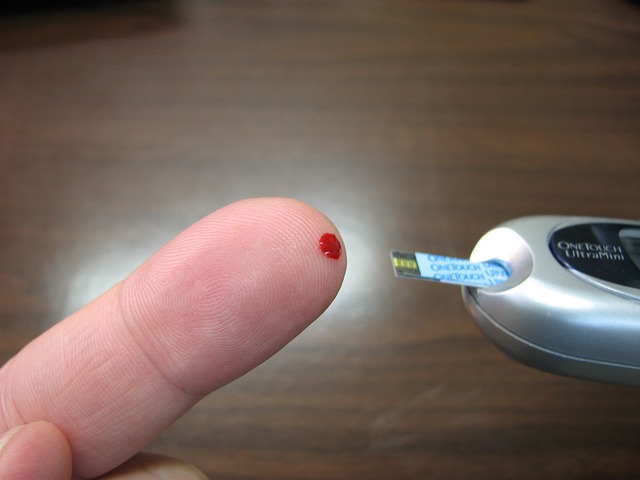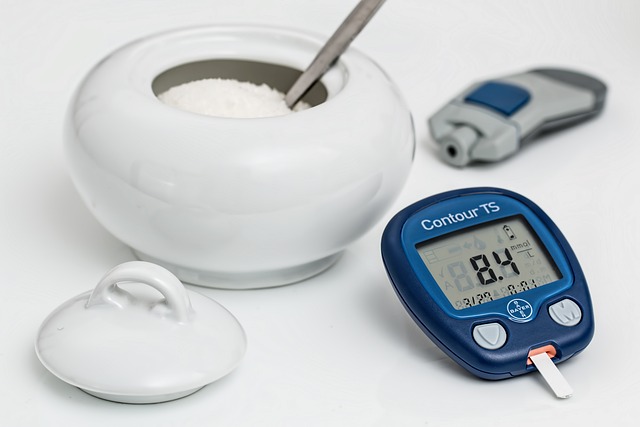What is Insulin Resistance?
PCOS is a common endocrine disorder affecting women in reproductive age, characterized by chronic anovulation and higher androgens. The exact cause of PCOS is still not known. According to several studies. Insulin resistance is the main cause for developing PCOS. Because of over consumption of restaurant foods, sugar and sedentary lifestyle, continuous blood glucose spike and crash occurs.
At that time, insulin hormone (key hormone to regulate blood glucose level) could not cooperate effectively. It is termed as insulin resistance. As the consequences of insulin resistance, women affected by PCOS, often present abnormalities of glucose metabolism and liquid profile and have an increased risk of type 2 diabetes and cardiovascular disorders over a period of time.

Insulin Resistance and PCOS
In PCOS, due to insulin resistance, the body is not able to send enough sugars to the cells that need glucose for energy. To compensate the body produces even more insulin. The extra insulin produces increased level of male hormone (androgens). Moreover, the extra insulin can shut down ovarian function, which in turn decreases fertility. Insulin resistance also decreased the menstrual cycle, resulting in a build of the endometrial fluid in the uterus. This can cause endometrial cancer.
Insulin Resistance and Type 2 Diabetes
Another common endocrine disorder associated with insulin resistance (IR) is Type 2 diabetes also affects a large proportion of female population, generally at the middle age. It is proven that IR is major cause for developing type 2 diabetes, although the exact nature and mechanisms of relationship between PCOS, type 2 diabetes and insulin resistance is not known. IR, increased amount of insulin cause Beta cells (pancreatic cells) dysfunction. If the beta cells compensatory slowdown, type 2 diabetes and insulin resistance may result. IR is also an increased risk of development of fatty liver.

Relationship between PCOS, Insulin resistance and Type 2 diabetes:
Dr. Amy Schutt describes PCOS as “the canary in the coal mine” because it is often a warning for others, serious health conditions, such as prediabetes, insulin resistance and uterine abnormalities. “Women with PCOS are at risk in the future of developing type 2 diabetes, metabolic syndrome, uterine cancer and possible heart disease. So, it is very important that we identify PCOS when women are young and when we can best intervene.”
Approximately 8% of women who suffer from PCOS must also deal with weight gain. The additional weight is usually stored in the belly area and increase the risk for type 2 diabetes and metabolic syndrome. While weight gain does not cause PCOS, research indicates that women who lose between 2 and 10% of their weight can improve their symptoms.
Diabetes is one possible complication of PCOS. Women who suffer from PCOS have four times the risk of receiving a diagnosis of type 2 diabetes than women who do not. Approximately 50% of women with PCOS will develop type 2 diabetes before they are 40 years old. Between five and 15% of women with PCOS will develop type 2 diabetes within three years of their diagnosis.
Metabolic syndrome is a combination of high blood pressure and high cholesterol, which increases the risk of heart disease. Women who suffer from PCOS have higher level of bad cholesterol (LDL) and lower level of good cholesterol (HDL). They also have a higher risk of developing high blood pressure and stiff or clogged arteries. This is especially true if type 2 diabetes is not well managed.
Nonalcoholic fatty liver disease is an inflammation in the liver that is not caused by alcohol consumption. Two of the causes of this disease are obesity and insulin resistance, which are common factors with women who suffer from PCOS.
Miscarriages and premature births are among other common issues that women who suffer from PCOS face. There are several potential reasons for this, including excessive androgens and excessive insulin.
Research on PCOS, Type 2 diabetes, Insulin Resistance:
According to Australian research, collected data from over 8000 women and found that those who had PCOS were four to 8.8 times more likely to develop type 2 diabetes than women who did not have PCOS.
According to another older research, up to approximately 27% of perimenopausal women with type 2 diabetes also have PCOS. A 2017 study of Danish women found at those with PCOS were four times as likely to develop type two diabetes. Another study shows, women with PCOS also tended to be diagnosed with diabetes four years earlier than women without PCOS.
Tips to fix Insulin resistance:
We have learnt that IR is a major cause for developing PCOS and type 2 diabetes. If we want to overcome these major disorders, then we have to fix insulin resistance. Balance diet, lifestyle modification, both are important tools you can use to control your IR.
Eating foods that are lower in starches and sugars yet are higher in fiber, can naturally lower your blood sugar, reduce inflammation and can reduce insulin levels. In addition, you should avoid foods that have a high amount of refined carbohydrates.
The amount of fructose you consume can make a difference in your insulin sensitivity. Lower amounts of fructose, as is found in fruits, can actually improve insulin sensitivity. However, higher amounts of fructose from sodas, fruit juices and desserts can hurt insulin sensitivity.
Flaxseeds have been shown to decrease androgen levels and insulin levels. Eating about tablespoon and half of flax seeds every day can also help you lose weight and itches from your waist. They can be added to salads, put in smoothies, or turn into seed butter snack.
Cinnamon can reduce insulin resistance and increase ovarian function. Even 1/2 to a full teaspoon of cinnamon each day can have a positive effect on your health.
Exercise is another way to reduce the insulin and blood pressure levels. Any amount of exercise can help reduce insulin levels and improve PCOS symptoms, although a minimum of 30 to 60 minutes of exercise per day is recommended by Healthline. Dr Briden recommends aerobic exercises and resistance training.
Medication is also used to control insulin levels. Metformin, one of the main medications used to control the glucose in the blood makes you more sensitive to insulin and decreases the amount of glucose released by your liver. Studies have shown that metformin combined with healthy diet and exercise helps reduce the risk of developing type 2 diabetes. In addition, it helps women who have PCOS lose weight and keep it off. Metformin also helps lower cholesterol.
Some supplements will help you to improve insulin sensitivity. Cod liver oil has vitamin A, D and Omega 3 fatty acids. Taking this supplement can help regulate your menstrual cycle and reduce fat around your waist. Evening Primrose oil can help reduce the pain associated with menstruation and can also help regulate menstrual cycles. Turmeric is also another supplement that may be able to decrease insulin resistance and to reduce inflammation.
Vitamin D and calcium can help improve the symptoms of PCOS. In one study, infertile women with PCOS who consumed 1000 milligrams of calcium daily, 100,000 international units of vitamin D over 6 months and 1500 milligrams of metformin experienced improvements in their menstrual cycles, BMI and other symptoms associated with PCOS and insulin resistance.
Foods that high in Vitamin D include salmon, sardines herring and Cod-liver oil, tuna, oyster, shrimp, egg yolks, mushrooms and fortified foods such as Vitamin D cow milk, soy milk, orange juice, cereal and oatmeal. Calcium rich foods include dairy products, seeds, sardines, salmon, some leafy grains, like spinach, kale and collards, legumes, beans, almonds, fortified foods and drinks, tofu and Edamame.
Magnesium is another supplement that might help you with your symptoms of PCOS because it may lower your insulin resistance. Dark chocolate is the great sauce of magnesium and manganese, and it has prebiotic fibers, that help feed the healthy bacteria in your gut. Dark chocolate also has antioxidants that has lower bad cholesterol. Avocados are high in magnesium fiber and good fat.
Nuts are high in magnesium, fiber and good fat. Studies indicate that nuts can improve blood sugar and cholesterol for people who suffer from type 2 diabetes. Legumes, tofu seeds, whole grains, leafy grains, bananas and fatty fish are also high in magnesium, fiber and other important nutrients. Walnuts and almonds can increase the hormone-binding globulin and decrease level of androgens produced.
Chromium has been shown to decrease blood sugar levels and insulin resistance. One study showed that taking 200 milligrams of chromium each day had the same effect on reducing IR as taking metformin. Chromium is found in a lot of food, including vegetables, whole grains, fruits, meat and dairy products. WebMD states that it is important to note that chromium can interfere with thyroid medication. So, if you take thyroid medication, it is essential that you talk with your doctor before adding any kind of chromium supplements or adding a lot of chromium rich foods to your diet.
Omega 3 fatty acids have demonstrated an ability to lower testosterone and to help remain resume normal menstrual cycles. Sardines, wild Saman and framed Oyster are good sources of Omega 3 fatty acids. Canola oil and soybean oil also have fatty acids in them. Walnuts, tofu, leafy green vegetables are also good source of Omega 3 fatty acids. You can also take fish oil supplements.
Studies indicate that berberine, found in foods such as Oregon grapefruit, goldenseal and Barberry, lowers insulin resistance as much as metformin. It also contributes to greater fat and weight reduction. 500 milligrams of berberine should be taken two or three times a day. Coconut oil and milk thistle can help your body digest the berberine.
Apple cidar vinegar also helps improve insulin sensitivity. One study showed that after taking one tbsp of vinegar daily, 4 to 7 women began ovulating. Six women had a significant improvement in insulin sensitivity, and 5 women decreased the number of androgens they produced. Apple cider vinegar can be used in cooking, sauces and on salads.
Zinc is an element that aids in the function of hormones, enzymes and immunity. In studies, zinc has shown to decrease the growth of body hair. The recommended dosage is 220 milligrams of zinc sulphate daily. This is great news if you love dark chocolate because dark chocolate is a source of zinc. Unfortunately, it is also a high calorie food. Other foods that are rich in zinc include meat, shellfish, legumes, seeds, nuts, dairy fruits, eggs and whole grains.
Studies indicate that adding Inositol in your diet can increase your menstrual cycles, improve insulin sensitivity and decrease the production of male hormones. Foods that contain inositol are eggs, meat, whole grains, legumes, sprouts, nuts, seeds and many vegetables. Taking between 1200 and 2400 milligrams of Inositol daily can help significantly reduce symptoms of PCOS.
Vitamin B9 also known as folic acid, is an essential addition for women who wish to become pregnant. Women at a normal weight should take 400 micrograms of folic acid daily, while overweight and obese women should take five milligrams daily. Kale, cabbage, broccoli cauliflower and asparagus are good sources of folic acid.
Conclusion:
Insulin resistance is a significant contributor to PCOS and type 2 diabetes, even fatty liver. It causes the ovaries to produce male hormones, which causes excessive hair growth, male pattern boldness and excessive acne. IR contributes to infertility. There are many natural foods and supplements you can take that can help improve your insulin sensitivity and help reverse many of the symptoms of PCOS and Type 2 diabetes. If you want to know more about PCOS, hormonal imbalances, type 2 diabetes, insulin resistance, women wellness and hormonal health, then follow my Instagram page.


Leave a Comment